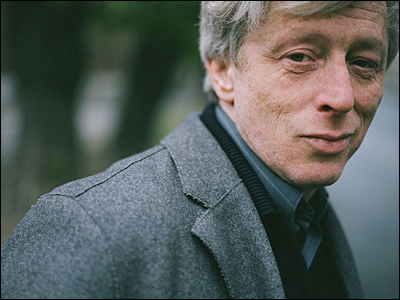Leonid Desyatnikov – composer and artistic director of the Bolshoi Theatre

I had a conversation about opera with Leonid Desyatnikov. Desyatnikov is one of Russia’s most prominent composers and since 2009 the artistic director of the Bolshoi Theatre. His opera Rosental's Children, based on the libretto by the highly controversial fiction writer Vladimir Sorokin commissioned and staged at the Bolshoi Theatre made an enormous and scandalous success. One of the opera reviewers described: ’’Here, Mozart is a clone brought to life at Doctor Rosenthal's laboratory. With the government subsidies for cloning and stem cell exploration, as well as for other areas of basic research, cut off during Boris Yeltsin's presidency in the early 1990s, clones of Mozart and other great composers-such as Giuseppe Verdi, Richard Wagner, and Pyotr Tchaikovsky – find themselves loose on Moscow's streets, exposed to the murky post-Soviet reality, memories whereof are still fresh for many Muscovites.’’ The Russian State Duma accused the opera of being ‘pornographic’ and promted an investigation after its premier. Nevertheless, the opera received a Golden Mask Award.
Elena Langer: Can we please talk about opera?
Leonid Desyatnikov: Why opera?
EL: Because of your Rosental's Children, because you are the artistic director of an Opera House and because I have ulterior motives as I have just finished writing my own full-length opera and am very keen to discuss various aspects of the genre. Do you think you could describe what opera is in one sentence?
LD: This is too difficult! I can only offer a banal answer – a pinnacle in the history of European culture.
EL: Is opera a story told through music, singing and movement?
LD: No, it doesn’t necessarily need a story. There are many wonderful operas in which nothing really happens. Take Saint Francis of Assisi by Messiaen, or any baroque opera… If a composer uses mythology then the story lacks suspense. The development of the plot becomes unimportant as everybody knows what is going to happen.
EL: At least we now have established what is NOT important and that is the plot!
LD: Of course – look at Tristan and Isolde or Szymanowski’s King Roger…. In any fiction film many more events take place than in an opera.
EL: What is important then?
LD: Well, what is important is that it creates some fit of passion, some metaphysical, otherworldly psychological human state expressed through music. Opera shows us characters in such emotional states that are otherwise impossible to express but through music.
EL: It is the only genre where we can hear the thoughts of several characters simultaneously…
LD: Yes, true, but we can’t hear the text in 95% of cases! Instead, we see a special moment, where a few characters are shocked. At least I personally always remember those kinds of bewitched moments. ‘I’m frightened’ (‘Mne strashno’), for instance, from the first tableau of The Queen of Spades or the finale of The Marriage of Figaro. So after all, it doesn’t matter what they are saying, it matters what they all are feeling during those moments. Music is able to tell us more than the text in this situation. The characters are still, like in a child’s play ‘statue’. The depth of their feeling is interesting – the ensembles are not about what you see, but what you don’t see, about the inner side of life.
Excerpt from Desyatnikov's opera 'Rosental's Children'
EL: Could you name your 5 favourite operas?
LD: Five favourite operas for a professional composer would not be enough. Your favourite opera is the one, where you revel with each note, which you know by heart from beginning to end. There are music-lovers, who could sing each character’s lines from their favourite operas.
EL: True! My grandma could sing huge bits from Traviata and Eugene Onegin although she wasn’t a musician.
LD: Probably, you could only be so faithful to opera if you are a music lover, not a professional composer. Opera for me and should be for you, a kind of back garden, which you can’t regard with reverence. We have to cultivate this back garden because we are its owners.
EL: But I still regard Wozzeck or Lady Macbeth of Mtsens with reverence…
LD: As a matter of fact, Lady Macbeth of Mtsensk doesn’t touch me much. Actually, the same could be said about Wozzeck. Although, the culmination moment in the d-minor invention couldn’t leave anybody untouched. The problem is that I know this opera from inside out – for a few months I was living with it. (Wozzeck was recently staged at the Bolshoi Theatre – EL). So it is really hard to be emotionally shocked by something that you know so well. My perception of it is not fresh enough.
EL: I’m always amazed by the German counterpoint, the intensity and richness of it. I don’t think you could find that level of counterpoint in Russian music.
LD:
